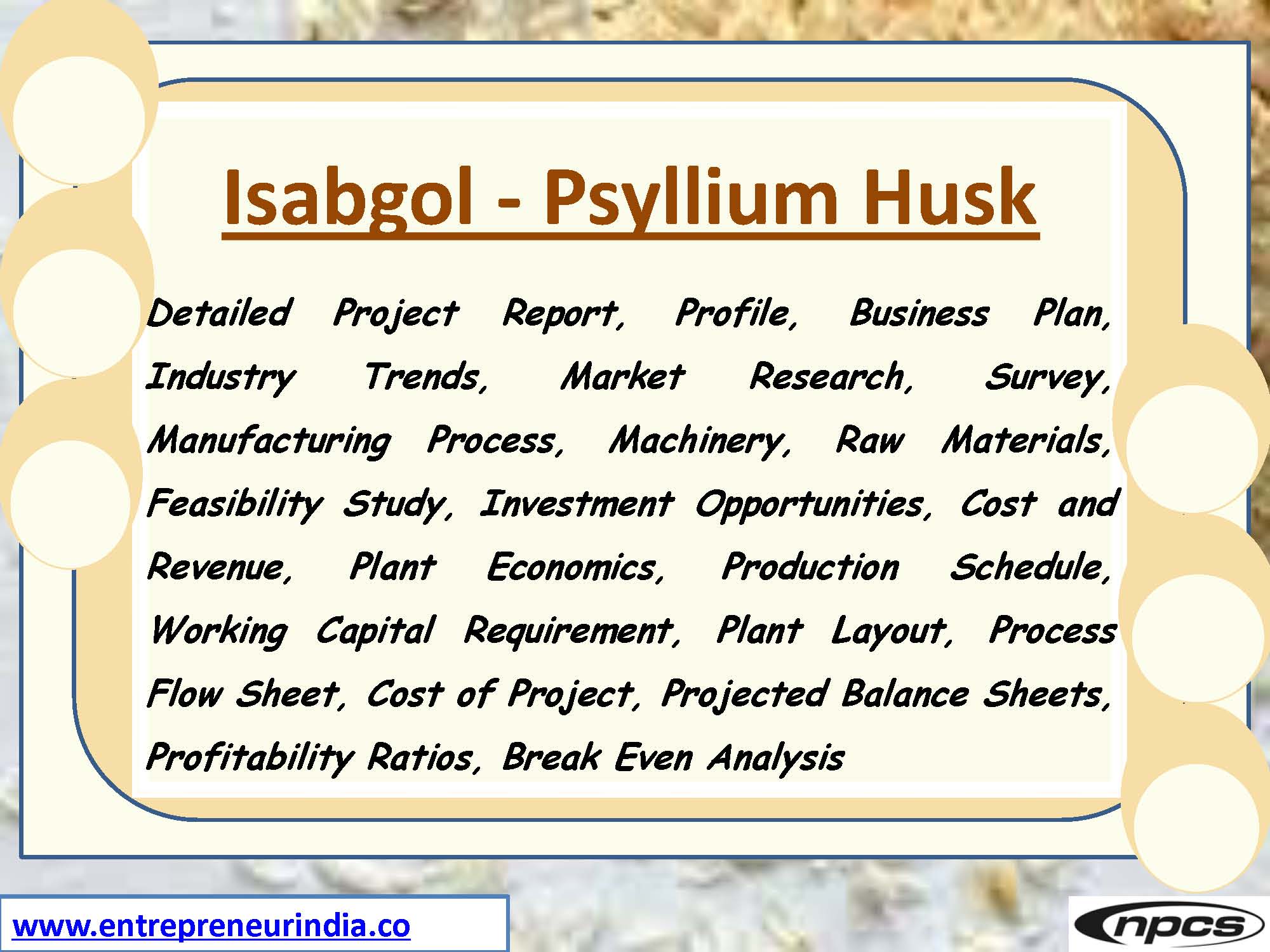
Psyllium husk, commonly known as Isabgol, is a natural dietary fiber extracted from the seeds of Plantago ovata. With increasing awareness about gut health and organic products, global demand for psyllium husk (Isabgol) is on the rise. It’s widely used in pharmaceuticals, food processing, and dietary supplement industries due to its high fiber content and digestive benefits. Moreover, its cultivation requires minimal inputs, making it a profitable crop for farmers in arid regions. For entrepreneurs, investing in a psyllium husk processing business offers strong growth potential, especially when supported by a well-structured project report and business plan focused on quality, scalability, and compliance.
Psyllium Husk (Isabgol) Business Plan & Project Report Overview
Setting up a psyllium husk (Isabgol) processing unit involves strategic planning, right from sourcing raw seeds to packaging the final product. A detailed project report outlines the financials, technical requirements, and market feasibility. Moreover, the business plan covers production capacity, quality control, government compliance, and export potential. Since psyllium is mostly exported, maintaining purity standards and certifications like ISO, HACCP, or GMP becomes essential. Understanding the value chain—from cultivation to final packaging—helps entrepreneurs minimize risk and optimize profitability.
Read More :oil processing
Raw Material Procurement and Processing
The business begins with sourcing high-quality Plantago ovata seeds, typically cultivated in Rajasthan and Gujarat. After cleaning and drying, the seeds undergo mechanical crushing to separate the husk. This is followed by grading and sieving to ensure fiber purity. Maintaining hygienic conditions during processing is critical, as psyllium is used in health-related products. In the psyllium husk (Isabgol) industry, equipment like air classifiers and cyclone separators help achieve uniform particle size and high yield. Investing in efficient machinery ensures low waste and consistent quality.
Market Potential and Target Customers
Psyllium husk has a strong market across health-conscious consumers, pharmaceutical companies, and dietary supplement brands. In India, demand is rising steadily, but over 80% of production is exported—primarily to the US, EU, and Middle East. Its natural laxative properties, cholesterol-lowering benefits, and gluten-free appeal attract a broad consumer base. Moreover, the global shift toward plant-based and fiber-rich diets has made psyllium husk (Isabgol) a trending product in wellness and functional foods. A robust business plan should include a targeted export strategy and compliance with international quality norms.
Financial Overview and Profit Estimation
The initial investment for a small-to-medium processing unit includes costs for land, machinery, labor, and packaging infrastructure. A basic setup may require ?25–50 lakh, depending on capacity. Recurring expenses include raw material purchase, energy, wages, and logistics. However, with good sourcing and efficient operations, profit margins can reach 20–25%. A comprehensive project report should include ROI calculations, break-even analysis, and cash flow projections. Moreover, financial support through government subsidies and agricultural schemes can further ease the investment burden for psyllium husk (Isabgol) businesses.
Regulatory Compliance and Certifications
To enter both domestic and international markets, regulatory compliance is critical. Certifications like FSSAI, ISO 22000, and organic labeling add credibility. Exporters may also need USFDA and EU certifications for specific countries. Compliance includes proper labeling, hygienic processing, and traceability. Moreover, adhering to environmental regulations and sustainable packaging trends enhances brand reputation. As the psyllium husk (Isabgol) industry continues to grow, businesses that maintain high standards in compliance will gain a competitive edge.
See Also : Aluminium Downstream Projects
Conclusion
In conclusion, launching a psyllium husk (Isabgol) processing business offers strong potential with relatively low risk. With rising demand in health, food, and pharma sectors, the market is ripe for entry. However, success depends on a clear business plan, quality raw material sourcing, efficient processing, and regulatory compliance. Moreover, a detailed project report helps attract investors and streamline operations from day one. By focusing on quality and market-driven strategies, entrepreneurs can tap into both domestic and global opportunities in this thriving segment.





